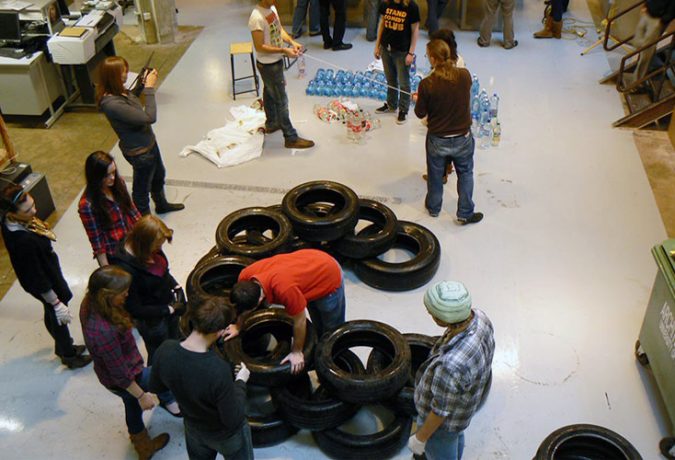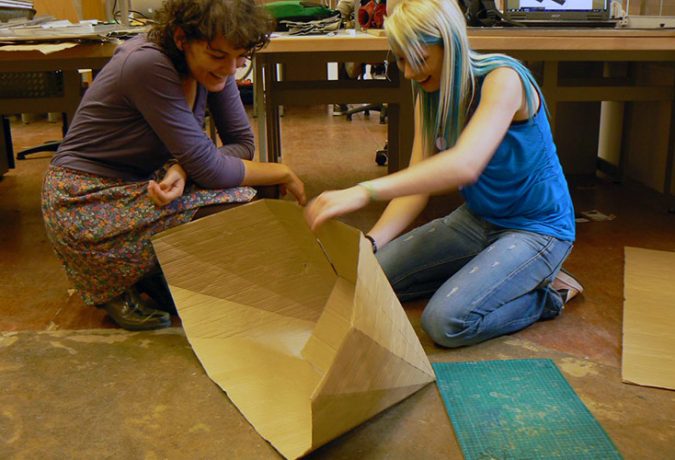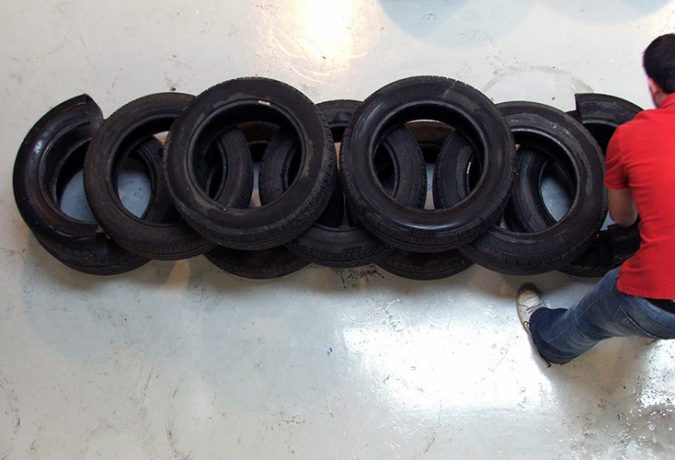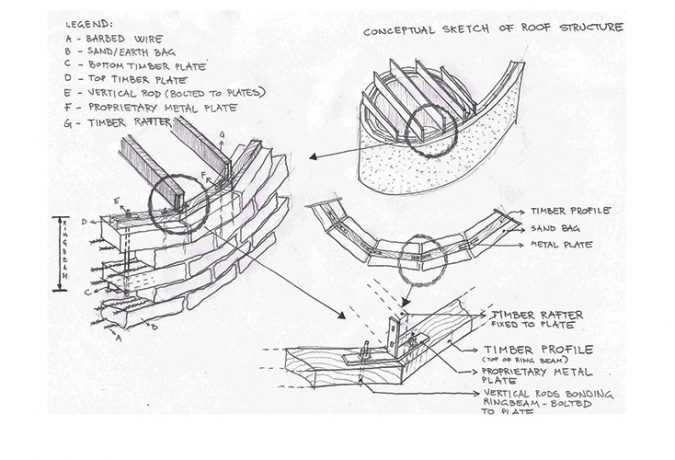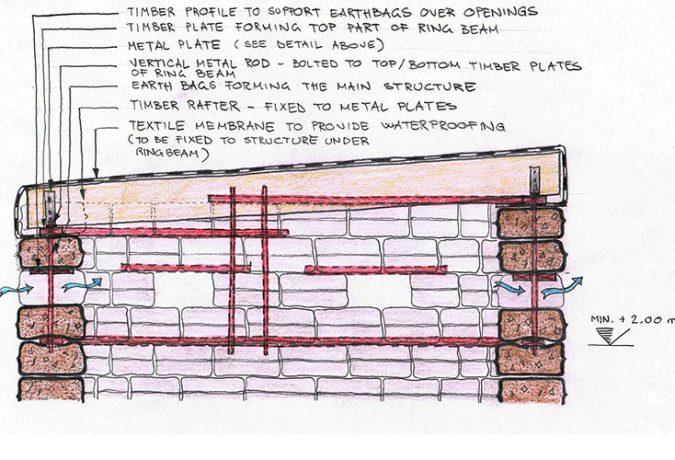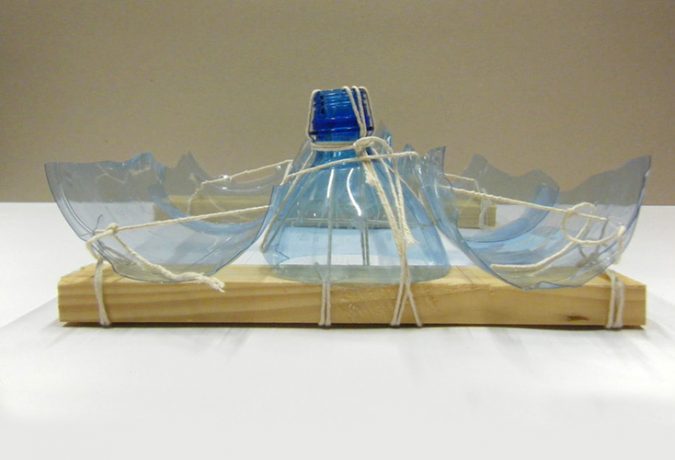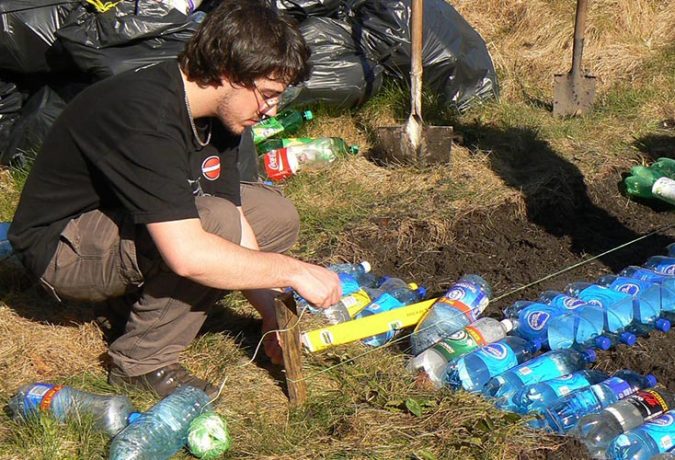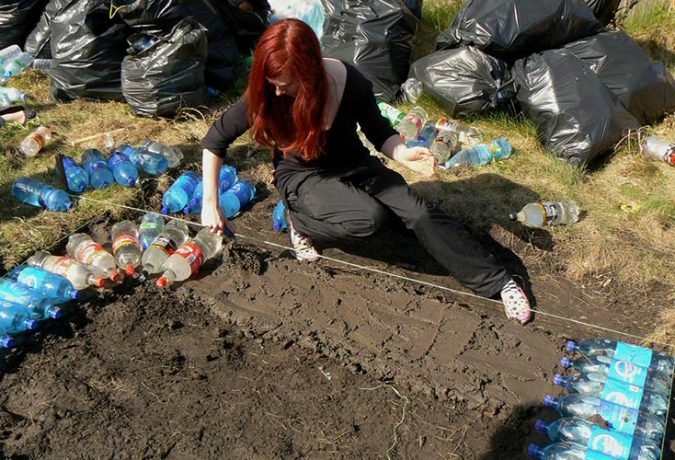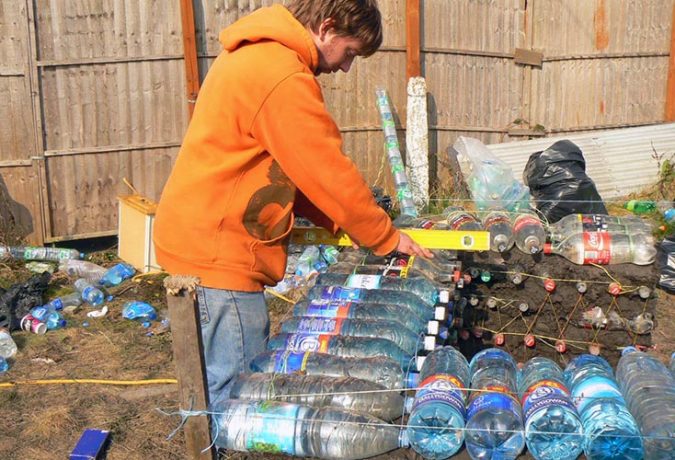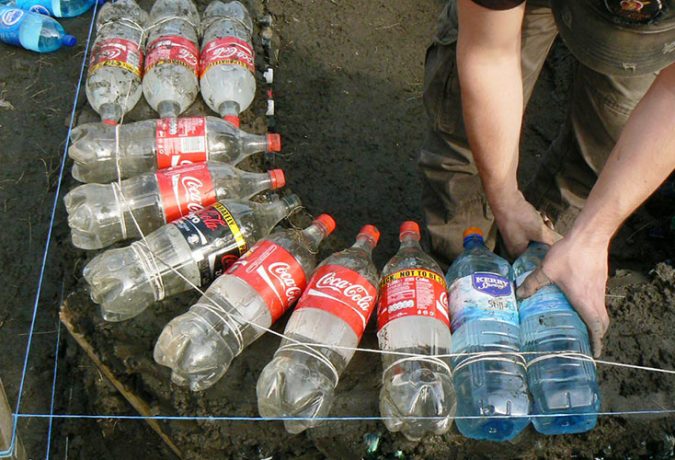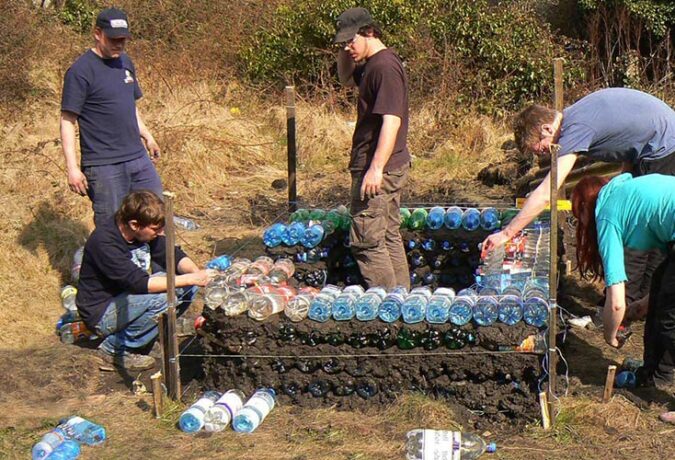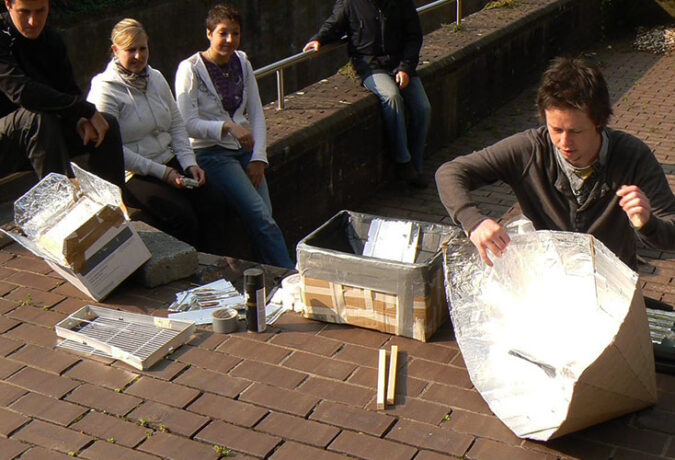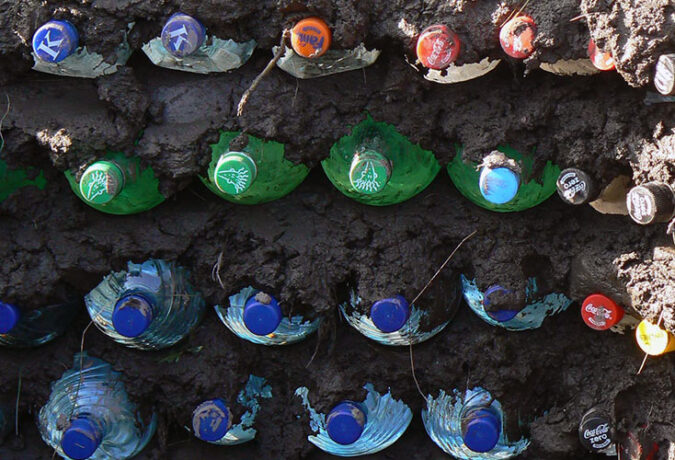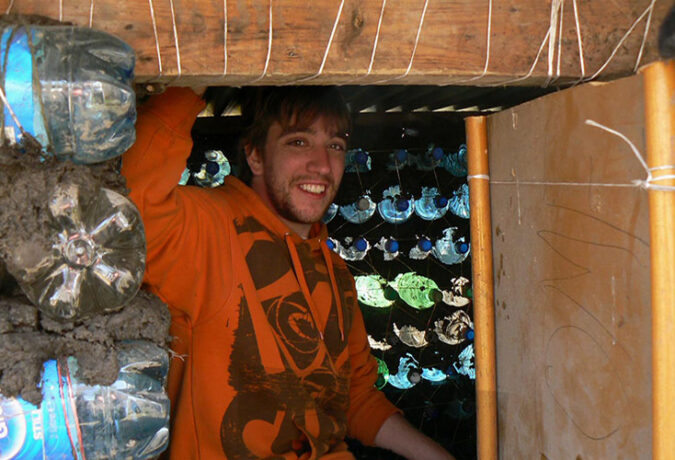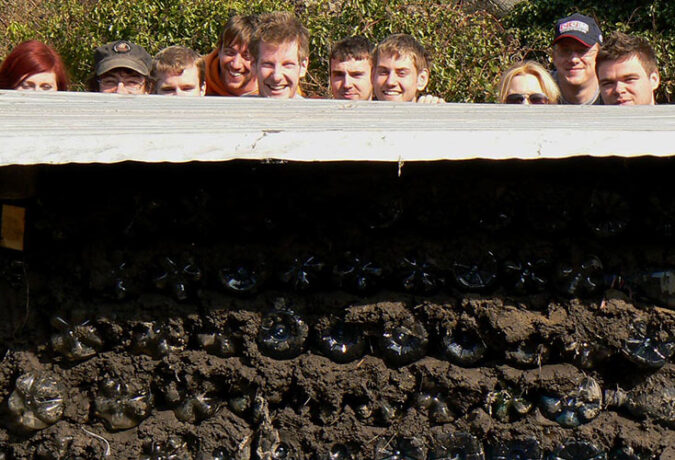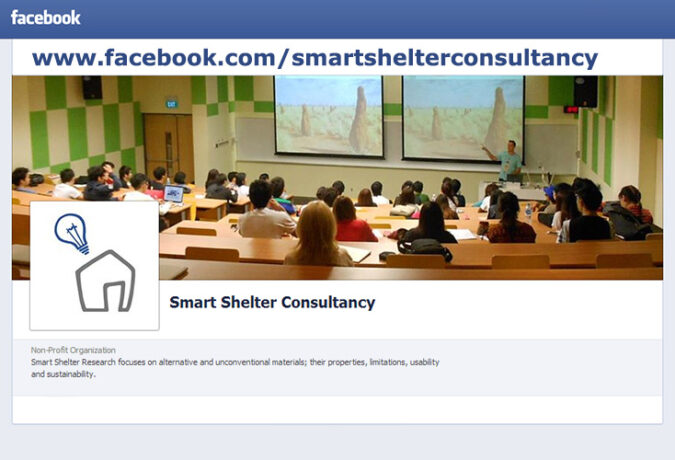Summer School Program
Description of Workshop
| Topics: | alternative construction, social design, emergency architecture, safe construction, hands-on building experience |
| Disciplines: | architecture, civil engineering |
| Type: | complete design & build workshop |
| Hands-on: | solar cooking, soil testing, the art of upcycling, height challenge |
| Field Trip: | highly recommended |
| Duration: | 3 to 6 weeks |
Summer School – Building your own ideas with your own hands!
The Summer School program is the most comprehensive package, combining elements of all our formats. Through a series of lectures, design assignments, and hands-on experiments, it leads to the grand finale: build your own design with your own hands!
The first week is about changing perceptions and creating a different mindset. Participants will be exposed to sets of extreme design conditions in a challenging context. Students will realize that the surprising results of the tasks and experiments are universal and apply to all disciplines and design tasks.
In weeks 2 and 3, we’ll introduce them to unconventional materials and alternative techniques, such as using natural materials and recycled materials. All of this knowledge and experience is transformed into a complete design and building strategy for their final task: building an actual structure. This can include walls, roofing systems, benches, playground equipment, a cafeteria … anything is possible!
Although this program is intended for architecture and civil engineering students, we encourage students from other disciplines to participate. We strongly believe that sharing knowledge leads to better solutions and unexpected results.
Aims and Outcomes
The program aims to completely change students’ thinking to encourage them to think outside the box, but in a realistic way. In the design courses, we’ll introduce them to unconventional materials and get them excited about alternative construction techniques and the need for sustainable solutions.
We’ll encourage students to make designs that directly benefit the university or local community. We can raise awareness of waste and recycling concepts by building a recycling station made from waste materials. Or we can build a cafeteria on campus that’s completely off-grid through the use of solar applications and biogas.
As they build their own creation, students learn firsthand to discuss, coordinate, collaborate, and compromise. The hands-on approach provides insight into the details of unconventional materials, such as corner solutions, connecting elements, making openings, finishing, and more.
Along with the directly applicable knowledge and hands-on experience, students learn to develop strong and meaningful designs that will guide them in their future work.
Lectures and Timetable for Week 1: Social Design
#1. Introduction about the work of Smart Shelter Foundation and explanation of the design assignments to the participants. (30 minutes)
#2. T-Shelters and Semi-Permanent Housing; What can we offer to people in post-disaster areas, when there is minimal finance available for reconstruction? (1 hour)
#3. Case Study; Rebuilding after the Tsunami in Sri Lanka; Full description of the design and rebuilding of 170 houses on the east coast, in a post-disaster and conflicted area. (1 hour 15 minutes)
#4. Case Study; Building a school in India with Earth Blocks; Complete story from design phase, to making blocks and masonry in a small village. (1 hour 15 minutes)
#5. Case Study; Building Earthquake Resistant Mountain Schools in Nepal; Construction overview for building safe schools in remote mountain areas. (1 hour)
#6. Lessons Not Learned; Relief Work and Developing Aid; A Critical View. Why is it difficult to work in developing countries or disaster struck areas, how can we deal with these situations? (1 hour)
| Morning Program | Afternoon Program | |
|---|---|---|
| Day 1 | #1 Opening + spaghetti challenge #2 Semi-permanent housing |
#3 Rebuilding in Sri Lanka Start design brief |
| Day 2 | #4 Case study India Work on design brief |
#5 Case study Nepal Work on design brief |
| Day 3 | Prepare for halfway presentations | Halfway presentations #6 Lessons not learned |
| Day 4 | Field trip or local research | Field trip or local research |
| Day 5 | Field trip or local research | Field trip or local research |
| Day 0 | Field trip or local research in weekend (optional) | Field trip or local research in weekend (optional) |
Lectures and Timetable for Week 2: The Art of Upcycling
#7. Wastewide Architecture; Inspiring examples from all over the world, of artists, designers and architects that use secondary materials in their work. (3 x 45 minutes)
#8. Movie ‘Garbage Warrior’. (1 hour 30 minutes)
#9. Engineering for the Bottom of the Pyramid; improving the lives of people by designing simple devices for lighting, energy, cooking (product design), tools and machinery (mechanical engineering). Includes making a solar cooker from campus waste. (1 full day)
| Morning Program | Afternoon Program | |
|---|---|---|
| Day 6 | #7 Wastewide architecture pt.1 Explain assignment |
#7 Wastewide architecture pt.2 + pt.3 Start collecting materials |
| Day 7 | #8 Movie Work on art and products |
Work on art and products |
| Day 8 | #9 Engineering for the BoP + Solar cooker assignment |
Solar cooker assignment |
| Day 9 | Work on art and products | Work on art and products |
| Day 10 | Work on art and products | Work on art and products Explain new assignment for Monday |
| Day 0 | Work on art and products in weekend (optional) | Work on art and products in weekend (optional) |
| Day 11 | Present art and products Prepare height challenge |
Height challenge |
Lectures and Timetable for Week 3: Natural Materials
#10. Building with Earth; An overview of 12 different construction types and examples of vernacular earthen architecture worldwide. (2 x 1 hour)
#11. Soil Identification; How to recognize different types of soils and how to modify them for certain construction uses. Includes soil testing assignment. (1/2 day)
#12. Building with Bamboo, examples from all over the world. (1 hour)
#13. Movie ‘Superadobe, the works of Nader Khalili. (55 min.)
| Morning Program | Afternoon Program | |
|---|---|---|
| Day 12 | #10 Building with earth pt.1 Explain final assignment |
#10 Building with earth pt.2 Work on designs for building week |
| Day 13 | #11 Soil identification + Soil testing assignment |
Work on designs for building week |
| Day 14 | #12 Building with bamboo Work on designs for building week |
#13 Movie Work on designs for building week |
| Day 15 | Finalize and present designs | Prepare site, materials, tools, equipment for the next week |
| Day 0 | Prepare site, materials, tools, equipment for the next week (optional) |
Prepare site, materials, tools, equipment for the next week (optional) |
Timetable for Week 4: Building the Structure
#14. Movie ‘Taste the Waste’ (1 hour 15 minutes)
#15. Closedown Lecture; The future strategy of Smart Shelter Foundation; A Center for Alternative Construction and Disaster Response. (20 minutes)
| Morning Program | Afternoon Program | |
|---|---|---|
| Day 16 | Start construction | Work on-site |
| Day 17 | Work on-site + #14 Movie Test solar cookers during lunch |
Work on-site |
| Day 18 | Work on-site Test solar cookers during lunch |
Work on-site |
| Day 19 | Work on-site Test solar cookers during lunch |
Work on-site |
| Day 20 | Finalize construction | Finalize construction #15 Close down and closing party |
Summer School Requirements
For the design weeks with lectures and practical experiments we don’t need anything else than the workshop requirements described here.
For the construction week, however, we need to have a few things ready:
- We need a site or space to conduct the work, preferably on campus or near the university. We may need certain permits from the university or local authorities. The advantage of building on campus is that students can continue, expand and use their structures in the future.
- Before we begin construction, we need to have our building materials ready and available. Even though we are focusing on natural materials and recyclables, please keep in mind that finding, gathering, or purchasing materials takes time and may come with some cost.
- We may need to budget a bit for tools (shovels, hammers, drills) and perhaps some simple materials for connections (nails, screws, tape). If the university has a workshop or tool shed on its premises, this may reduce the cost.
- A list of all expected items, materials, and tools will depend on the type of structure to be built and will be made in advance with all parties involved.
- A small budget should be reserved for some food and drinks that we’ll prepare with our own built solar cookers. It would be nice if we could also organize a small closing party on the last day.
Important Note
The suggested 4-week schedule on this page isn’t fixed and everything can be discussed and adjusted. For example, if you want more build time and less lectures, let us know and we will make a customized proposal. Please send us a request by filling out the
contact form.
